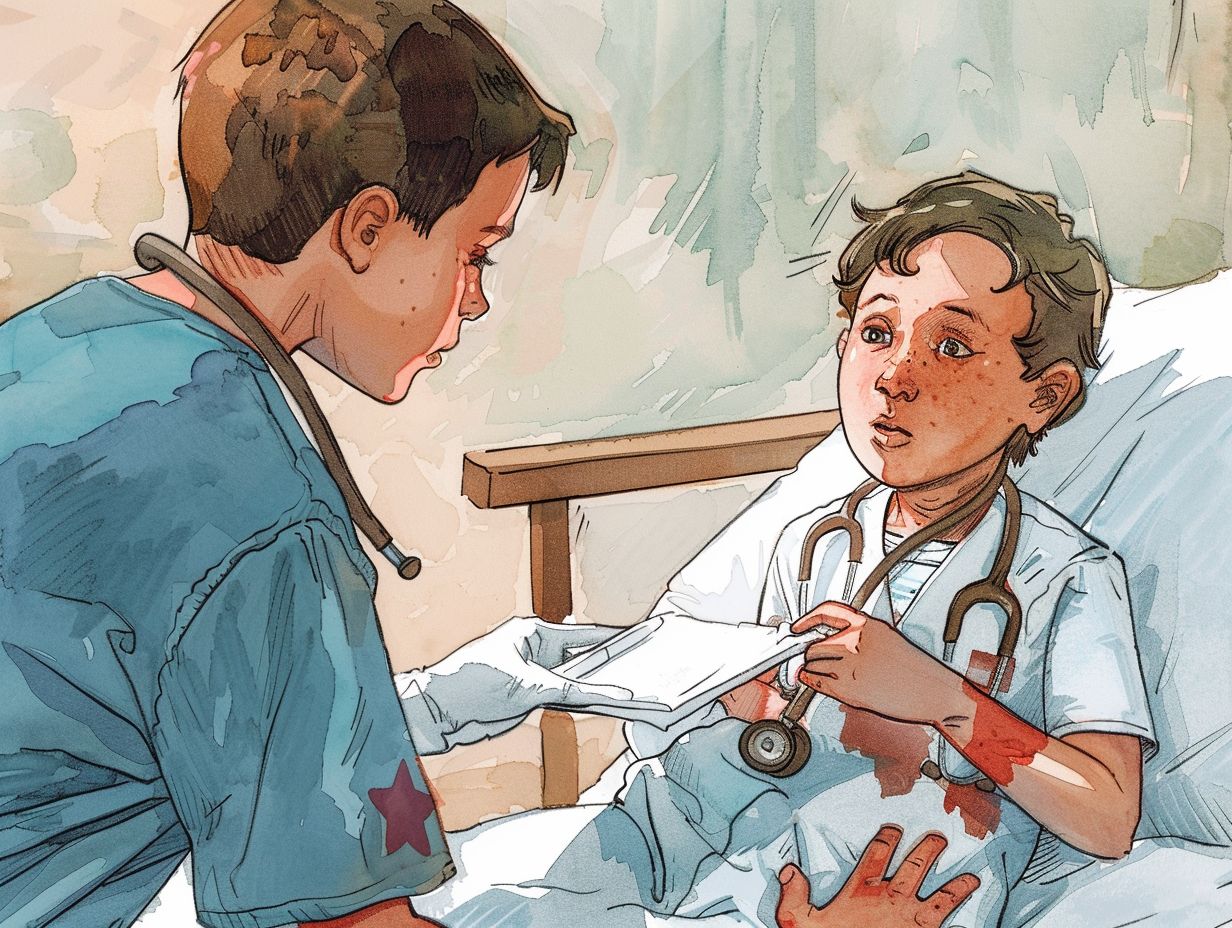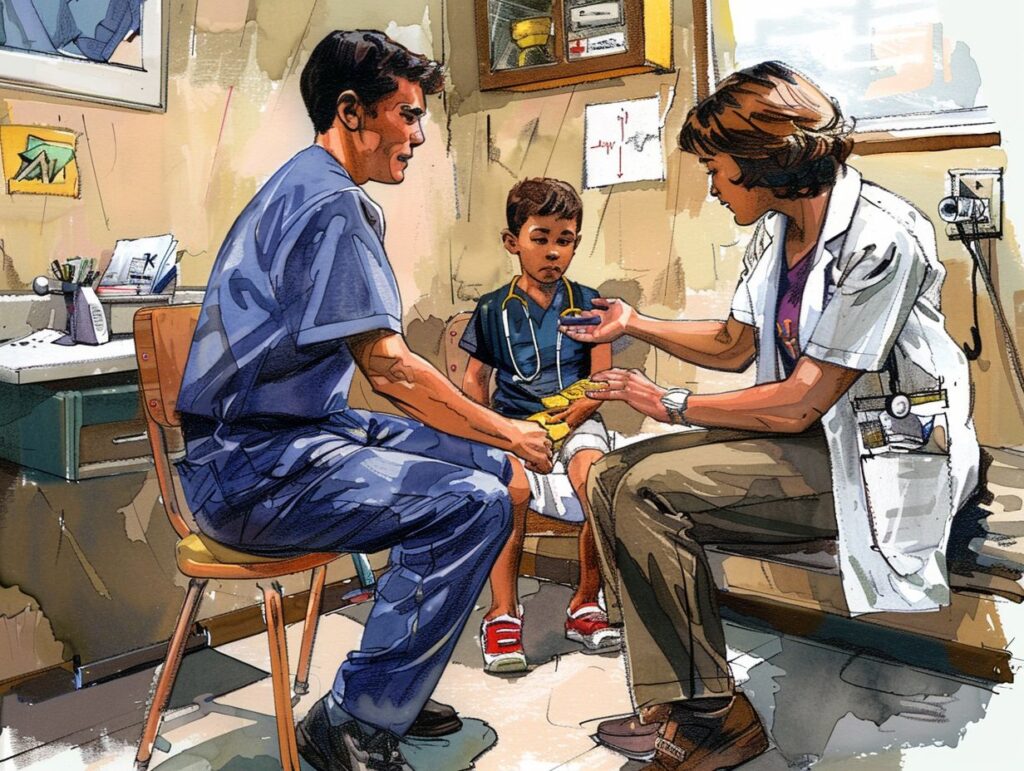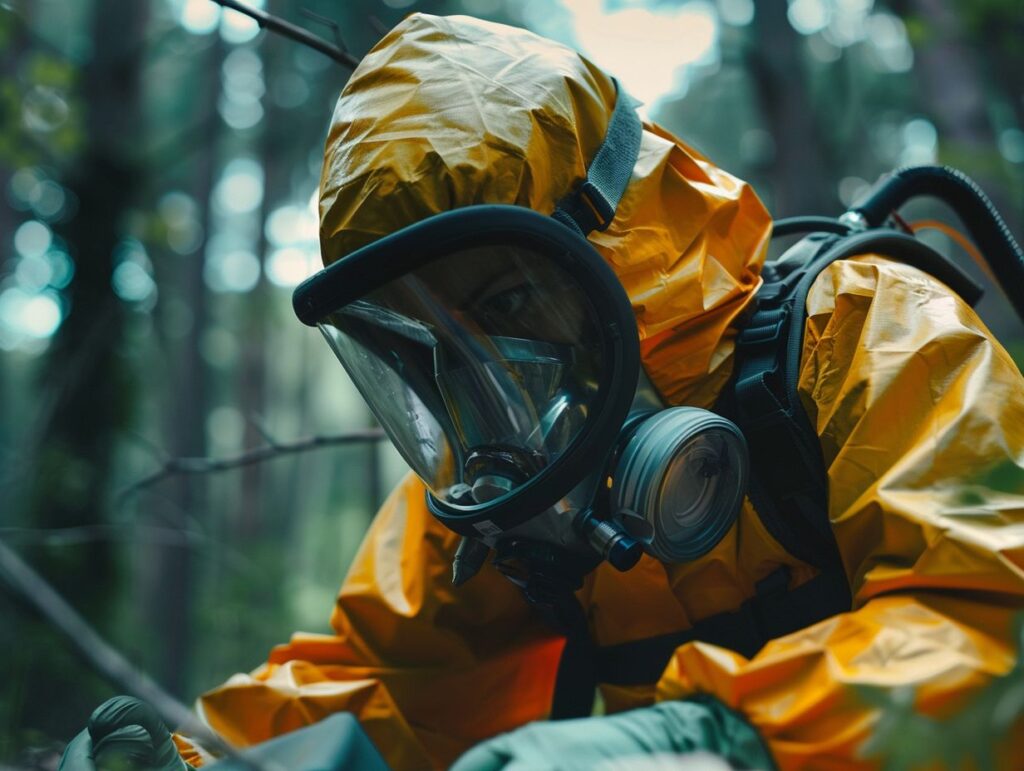Child injuries can be a traumatic experience for both the child and their family. In Florida, various types of child injuries can occur, from birth injuries to playground accidents, car crashes, swimming pool incidents, and dog bites.
It is crucial for parents to know what steps to take if their child is injured in Florida, including seeking medical attention, documenting the injury, and contacting a personal injury lawyer.
Understanding how to prove negligence in a child injury case and the importance of working with a knowledgeable personal injury lawyer can make a significant difference in the outcome of the claim.
Let’s explore these important aspects of handling child injury claims in Florida.
What to Do if Your Child is Injured in Florida

If a child is injured in Florida, it is important to take prompt and necessary actions, such as seeking medical attention, documenting the injury, and contacting a personal injury lawyer to guarantee the proper handling of the situation.
1. Seek Medical Attention
The first and most crucial step after a child is injured is to seek immediate medical attention to ensure the injuries are properly treated and documented.
Timely medical attention is important as it allows healthcare professionals to assess the severity of the injury and provide necessary treatment to prevent further complications.
Depending on the nature of the injury, medical treatments such as stitches, splints, casts, physical therapy, or even surgery may be required to assist in the child’s recovery. Proper documentation of the injuries and treatments received can also be crucial in any potential legal actions that may arise, ensuring that all necessary evidence is available to support the case.
2. Document the Injury
It is essential to document your child’s injury thoroughly to create a detailed record that can be crucial evidence in any subsequent personal injury claim or lawsuit.
One important aspect of effective documentation is capturing high-quality photographs of the injury from various angles and distances. These images can offer visual evidence of the injury’s nature and extent.
Maintaining detailed medical records, which include doctor’s notes, test results, and treatment plans, is vital for showcasing the injury’s impact on your child’s health.
Additionally, obtaining witness statements from individuals who witnessed the incident can help provide a comprehensive understanding of the events leading to the injury, thereby strengthening your case.
3. Contact a Personal Injury Lawyer
Seeking assistance from a personal injury lawyer is a crucial step to ensure expert legal guidance and representation for a child’s injury case.
An experienced personal injury lawyer can effectively manage the complexities of personal injury claims, streamlining the process and reducing stress. With the support of a legal professional, individuals can concentrate on a child’s recovery while legal aspects are handled.
A proficient attorney can evaluate the complete scope of a child’s injuries and losses, establishing a strong case for optimal compensation. They will engage in negotiations with insurance companies on behalf of the individual and advocate for the child’s rights to secure a just settlement or pursue the case in court if needed.
How to Prove Negligence in a Child Injury Case?
Proving negligence in a child injury case typically involves demonstrating that the responsible party had a duty of care, breached that duty, and directly caused the damages and injury sustained by the child.
1. Duty of Care
The initial step in proving negligence involves establishing that the defendant owed a duty of care to the child, based on the actions a reasonable person would take in similar circumstances.
This duty of care plays a critical role in safeguarding children from harm and ensuring that the adults responsible for their safety act sensibly and responsibly. For instance, in cases of playground injuries, the duty of care necessitates caretakers to maintain safe equipment and supervise children appropriately.
If a child sustains an injury due to faulty play equipment or inadequate supervision, the reasonable person standard is applied to determine if the caretaker’s actions aligned with the expected level of care. This standard assists in evaluating whether the duty of care was breached, potentially resulting in legal repercussions.
2. Breach of Duty
After establishing the duty of care, the next step involves demonstrating that the defendant breached this duty, resulting in the child’s injury.
A breach of duty occurs when the defendant does not act with the level of care that a reasonable person would have exercised in a similar situation. This could include actions like speeding in a school zone or not properly maintaining playground equipment.
Negligence can also stem from inactions, such as failing to provide adequate supervision or disregarding known safety risks. Evidence plays a critical role in proving a breach, as it offers the necessary proof to indicate that the defendant’s actions or inactions did not meet the expected standard of care.
3. Causation
Establishing causation in a child injury case involves demonstrating that the breach of duty directly led to the injuries sustained by the child.
Proving causation in personal injury lawsuits involving children necessitates establishing a clear connection between the defendant’s negligent behavior and the harm suffered.
This connection can be evidenced through various means, such as medical reports outlining the extent of the child’s injuries, expert testimony elucidating the cause-and-effect relationship, eyewitness testimonies of the incident, and any pertinent documentation like accident reports or surveillance footage.
By presenting a compelling case that illustrates how the defendant’s actions resulted in the child’s injuries, plaintiffs can bolster their argument for compensation.
4. Damages
Proving negligence typically involves demonstrating the damages resulting from a child injury, which may encompass medical expenses, pain and suffering, as well as other financial setbacks.
In cases of child injury, the damages that can be pursued vary based on the specific circumstances. Significant components of the sought-after compensation typically include medical costs, covering both present and future treatments. Pain and suffering, emotional distress, and the loss of quality of life are additional factors taken into account when assessing damages.
Comprehensive documentation of all expenses and the effects on the child’s well-being is essential to present a thorough claim. Legal representation is crucial for navigating the legal procedures and advocating for the highest possible compensation for the child and their family.
The Importance of Working with a Personal Injury Lawyer for Child Injury Claims
Working with a personal injury lawyer for child injury claims in Florida is essential due to their extensive knowledge of state laws, experience with similar cases, and ability to provide expert legal advice and representation.
1. Knowledge of Florida Laws and Statutes
A personal injury lawyer’s knowledge of Florida laws and statutes, such as F.S. 95.11, is crucial in effectively handling child injury claims.
Understanding Florida’s specific legal framework for personal injury claims is essential for building a strong case. In Florida, the statute of limitations for filing a personal injury claim, like child injury cases, is typically four years from the date of the incident.
Knowing this deadline is crucial, as missing it could result in the dismissal of the case. Being well-versed in Florida’s laws helps lawyers navigate the complexities of the legal system, ensuring that clients receive the compensation they deserve for their injuries.
2. Experience with Child Injury Cases
A lawyer with extensive experience in handling child injury cases can offer valuable legal advice and work towards achieving the best possible outcome for your claim.
Having a lawyer with specialized experience in child injury cases is essential due to their in-depth understanding of the unique complexities involved. These lawyers have a strong grasp of the laws and regulations governing such cases, allowing them to develop customized legal strategies that cater to the specific requirements of your situation.
With their expertise, they can navigate the intricate legal procedures and effectively advocate for your rights. Their understanding of the emotional and physical impact of child injuries enables them to approach each case with the necessary sensitivity and commitment, thereby enhancing the likelihood of a successful resolution.
3. Negotiation and Litigation Skills
A personal injury lawyer’s negotiation and litigation skills are important in securing a fair settlement or effectively representing a case in court. These skills are crucial in navigating the complexities of child injury claims, where emotional sensitivity and specialized legal knowledge are required.
Effective negotiation can lead to out-of-court settlements that benefit both parties and provide timely resolution. If a case goes to litigation, the lawyer’s ability to create persuasive legal arguments and present evidence in court is essential.
The outcome of a child injury claim may depend on the lawyer’s expertise in constructing a solid case, advocating for the child’s best interests, and seeking appropriate compensation for the damages suffered.
Frequently Asked Questions
What is considered a child injury in Florida?
In Florida, a child injury is any physical or emotional harm caused to a person under the age of 18. This can include injuries from accidents, medical malpractice, or intentional harm.
What steps should I take if my child is injured in Florida?
First, seek medical attention for your child. Then, gather evidence such as photos, medical records, and witness statements. Finally, contact a personal injury lawyer to discuss your options for filing a claim.
Can I file a child injury claim if my child was injured at school in Florida?
Yes, you can file a child injury claim if your child was injured at school in Florida. However, the school may have legal immunity, so it is important to consult with a lawyer to determine the best course of action.
What is the statute of limitations for filing a child injury claim in Florida?
In Florida, the statute of limitations for filing a child injury claim is generally within four years from the date of the injury. However, there are exceptions and it is best to consult with a lawyer to ensure you file within the appropriate time frame.
Can a parent or legal guardian file a child injury claim on behalf of their child in Florida?
Yes, a parent or legal guardian can file a child injury claim on behalf of their child in Florida. This is often necessary as a child may not have the legal capacity to file a claim on their own.
How are damages calculated in a child injury claim in Florida?
Damages in a child injury claim in Florida may include medical expenses, future medical care, pain and suffering, and loss of future earning capacity. The amount of damages awarded will depend on the specific circumstances of the case and the severity of the injury.

























Rate this article:
Average rating 0 / 5. Vote count: 0
No votes so far! Be the first to rate this post.
No Comments yet!